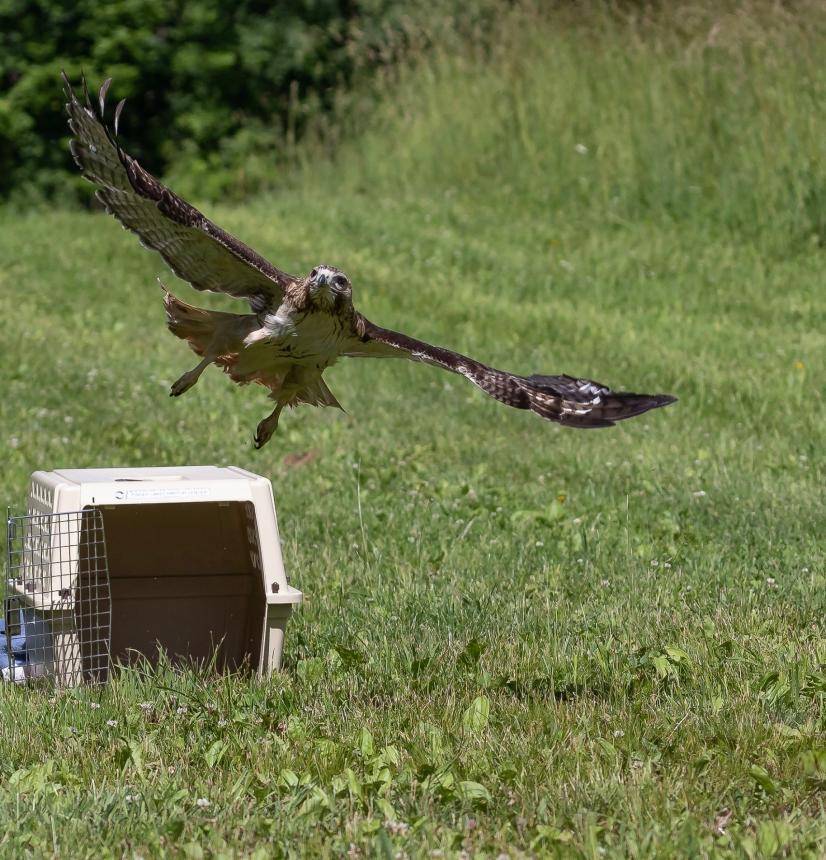News

Blog
November 15, 2021
Cornell veterinary student Jared Zion, DVM '23, spent his summer externing at the Israeli Wildlife Hospital in Tel Aviv. Read more about his unforgettable experience caring for a diversity of animals, including elephants, various birds, and ibex.

Video
November 09, 2021
After they lost their parents and developed bacterial enteritis all in the span of a few weeks, a litter of beaver kits came into the care of our team at the Janet L. Swanson Wildlife Hospital.

October 28, 2021
While global attention is of course currently focused on COVID-19 and other diseases that jump from animals to people, people and domestic animals can also spread disease to wildlife, notes the Cornell Wildlife Health Center's Dr. Steve Osofsky.
October 27, 2021
Cornell launched its “To Do the Greatest Good” campaign, kicking off a five-year endeavor that looks to raise $5 billion by 2026, which includes support for addressing sustainability and animal health issues.

October 22, 2021
The Veterinary One Health Association (VOHA) at Cornell hosted its annual symposium featuring guest speakers, special lectures and a virtual poster session covering One Health issues.

October 14, 2021
A severely injured young bald eagle had surgery at the Janet L. Swanson Wildlife Hospital and was successfully released after it recovered.

October 11, 2021
History is pockmarked with the scars of past zoonotic outbreaks. The Cornell Wildlife Health Center's Dr. Steve Osofsky discusses how global cooperation in a unified “one health” effort is needed to prevent the next pandemic.

For Your Information
October 07, 2021
By analyzing case records, Cornell researchers helped clarify and quantify the causes for wildlife rehabilitation, species involved, and treatment outcomes.

October 05, 2021
Dr. Katherine McClure, quantitative disease ecologist and 2019-2021 postdoctoral fellow with the Cornell Atkinson Center for Sustainability and the Cornell Wildlife Health Center, is working to save Hawai’i’s native bird populations from avian malaria.

October 04, 2021
Using the most technologically advanced test to make a diagnosis might seem like a logical move, but a new commentary paper co-authored by Cornell Aquatics Scientist Dr. Rod Getchell warns veterinary clinicians and researchers that a diagnosis cannot rely on tests alone.
